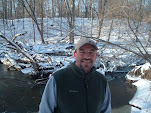Chomsky tackles the very difficult problem that we face when
we strongly disagree with someone. I would gather that if you have lived any
sort of life, you have encountered people that would fit this profile. The
belief that keeps me going despite running into the obstacle of those we might
consider nut-jobs, crazy, stupid, delusional or any of the many variety of
things that make us “despise them,” is empathy. Specifically empathy, where it
involves understanding the emotional states of other people and that ability to
imagine oneself in another’s situation. That can be a very difficult process
that takes some imaginative and sophisticated effort to accomplish.
I am not writing about sympathy and pity, as empathy is
distinctly different. True empathy will create pro-social behavior as we accommodate
our thinking about the differences of how we think in regards to people and
their ideologies. This will lead, I believe, to a positive state where we will
help and aid one another, regardless of how strongly we can disagree about
matters. We can start to focus on long-term welfare and social issues as well
as improving attitudes toward those stigmatized groups that dwell all around
us.
We need more cooperation, not competitiveness. More empathy.
When we are empathic toward others we should be putting a considerable distance
between the beliefs and viewpoints that we hold, and the experiences that shape
others basic sense of self. Have more understanding. This attitude will create
a condition of unconditional positive regard for one another and will create
for most people a greater sense of mission. Helping others and not focusing on
just helping ourselves for any of the variety of fear or selfishness we
possess.
All this is difficult to measure. But I have tried to be
more empathic in my thinking and I believe that it has helped me to be more
connected to people at a higher level, and is a sort of recovery process to
the narrow mindedness that I have suffered with in my past.
Empathy is a form of expansion of consciousness. That is what I
like to think.











